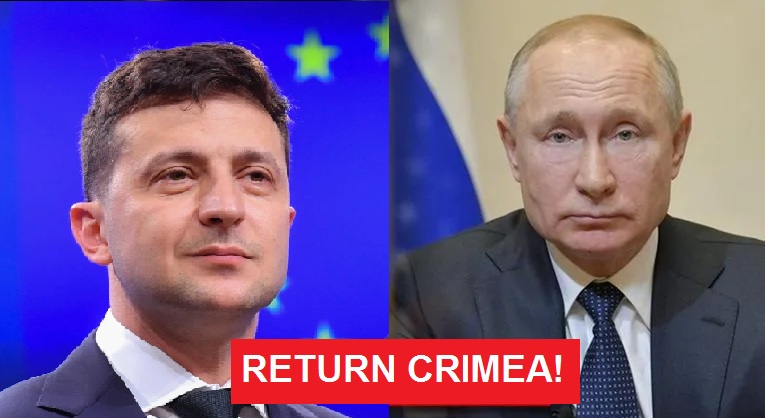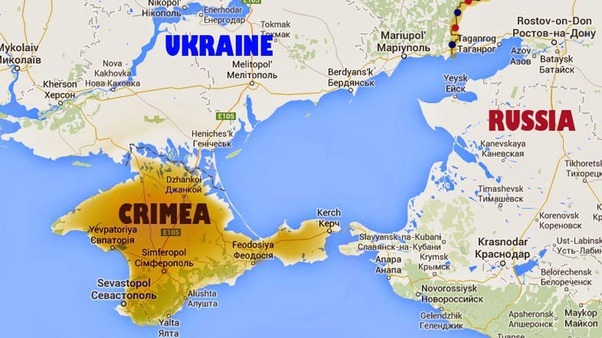
In the recently held summit on Crimea, Ukraine has called on Russia to end the occupation of Crimea and return the same ‘peacefully’. During the summit held on 23 August, the Ukrainian President Volodymyr Zelensky in his inaugural speech said: “Ukrainian Crimea was a guarantee of regional stability. Now it is a powder keg.” The event drew leaders from more than 40 countries, and they adopted a joint resolution on “peacefully ending the Russian Federation’s temporary occupation” of Crimea.
The European Council President Charles Michel who was a guest at the summit said: “Brussels would never recognize Crimea as part of Russia”. Latvian President Egils Levits said that the occupation was a ‘flagrant violation’ of international law and is still on the international agenda. He said that Latvia is in complete support of Ukraine’s call for the peaceful return of Crimea by Russia.
Russia responded angrily to the summit and the declaration of ‘return of Crimea’. The Kremlin spokesman Dmitry Peskov called the summit “extremely unfriendly” towards Russia and added, “the attitude is absolutely unambiguous. We treat it as an anti-Russian event.”
Russian annexation of Crimea
Since the March 2014 annexation of Crimea, the region has undergone systemic integration by Russia. The residents have been issued Russian passports, and the Kremlin has spent around Euro 2.6 billion to construct a bridge connecting Crimea to the Russian mainland. Local residents and advocacy groups have reported harsh discrimination against the Crimean Tatar community, but the majority Crimean population remains ethno-linguistically closer to Russia. The presence of the Russian military in Crimea serves as a geo-peripheral base with a strategic depth for Kremlin.

Russia President Putin has repeatedly said that he views the annexation of Crimea as non-negotiable. Crimea’s historic, linguistic and cultural ties served as a justification for the annexation in 2014. The referendum results claimed more than 80 per cent of Ethnic Russian voted to be a part of Russia. 15 per cent of Crimean Tatars who opposed the annexation suffered systemic exclusion. The referendum was deemed illegitimate by most of the world’s governments owing to the Russian military presence.
Russia’s claim over Crimea stems from its historicity, now, bolstered by Putin’s article titled, ‘On the Historical Unity of Russians and Ukrainians,’ published on 12 July 2021. Putin conceptualized the geographical belonging of Crimea and Ukraine within the larger Russian nation-building process, drawing on Russians, Ukrainians, and Belarusians being descendants of Ancient Rus. The Malorussian cultural identity within the greater Russian nation forms one of the many identity constructs that have formalized Russia’s stronghold in Crimea, along with the geopolitical moorings.
Ukraine Demands Reintegration of Crimea
Volodymyr Zelensky’s government has demanded that Crimea be returned to Ukraine Crimea was designated as an autonomous zone under the Ukrainian Constitution. In March, the Ukrainian government had adopted a Strategy of Deoccupation and Reintegration of Crimea. It also passed a law granting Crimean Tatars special status as an indigenous community. The parliament repealed a law creating a “free economic zone” that critics said was used as a mechanism to bypass sanctions.
Ukraine’s support for the Tatars is also a bone of contention between the two countries. Language too has become deeply politicized in the seven years of conflict between Russia and Ukraine. The conflict in the Donbas had threatened to escalate into a war but has since reached an impasse. Earlier in 2021, Putin had authorized a military build-up at the border, further pushing Ukraine’s domestic policies concerning Crimea.
